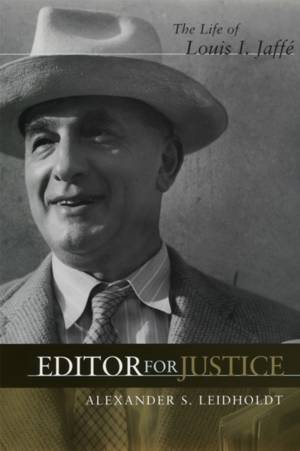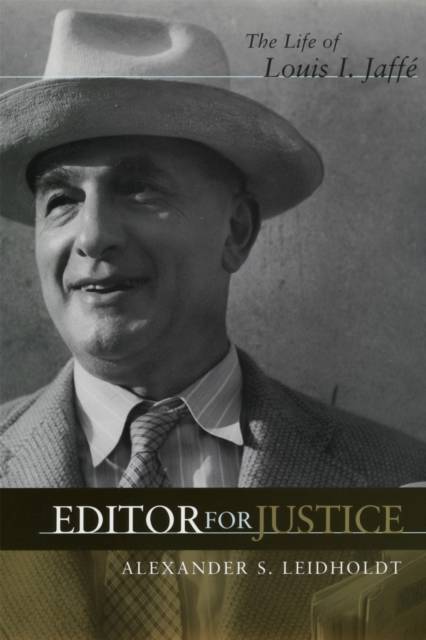
- Afhalen na 1 uur in een winkel met voorraad
- Gratis thuislevering in België vanaf € 30
- Ruim aanbod met 7 miljoen producten
- Afhalen na 1 uur in een winkel met voorraad
- Gratis thuislevering in België vanaf € 30
- Ruim aanbod met 7 miljoen producten
Omschrijving
From his assumption of the Norfolk Virginian-Pilot's editorial helm in 1919 until his death in 1950, Louis Isaac Jaffé served as one of the South's leading and most respected liberal journalists. Prejudice he faced as a Jew created in him an abiding empathy with the downtrodden, and his World War I military service and subsequent Red Cross work deepened his sensitivity to injustice. Alexander Leidholdt's new biography maps the battlefield of intolerance and civil rights violations on which Jaffé fired his journalistic salvos and explores the complexities of a man who was poised to become a national spokesman for a better South.
Jaffé worked ceaselessly to advance racial understanding, successfully lobbying locally for black parks and beaches, black police, and a black college. A high point of Leidholdt's book is the account of Jaffé's attacks on mob justice, a stirring record of one writer's response to what he saw as inexcusable moral sluggishness in civil authorities. For his campaign urging Virginia lawmakers to adopt stiff antilynching legislation, he earned the 1929 Pulitzer Prize for distinguished editorial writing. Achieving a poignant balance between Jaffé's significant professional accomplishments and the private pains he bore--including anti-Semitism, a mentally unstable wife, and an estranged son--this superb study demonstrates how Jaffé's difficulties limited him as an active liberal reformer but also fueled his prescient and impassioned warnings against Hitler's rise to power in the early thirties. Drawing extensively from primary source material, much of it previously unexamined, Editor for Justice makes an important contribution to journalism and to southern, Jewish, and black history. Readers will treasure the depiction of an extraordinary champion of human rights.Specificaties
Betrokkenen
- Auteur(s):
- Uitgeverij:
Inhoud
- Aantal bladzijden:
- 507
- Taal:
- Engels
- Reeks:
Eigenschappen
- Productcode (EAN):
- 9780807127513
- Verschijningsdatum:
- 1/05/2002
- Uitvoering:
- Hardcover
- Formaat:
- Genaaid
- Afmetingen:
- 162 mm x 236 mm
- Gewicht:
- 870 g

Alleen bij Standaard Boekhandel
Beoordelingen
We publiceren alleen reviews die voldoen aan de voorwaarden voor reviews. Bekijk onze voorwaarden voor reviews.









